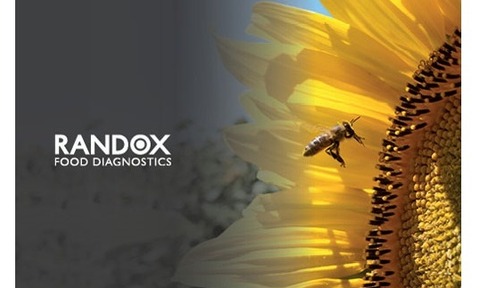
Randox Food Diagnostics has unveiled a reliable screening test for a highly regulated group of antimicrobials, Nitroimidazoles.
Both Nitroimidazoles and Chloramphenicol are used in the treatment and prevention of parasite and bacterial infection in bees.
Randox claims that the product is the first of its type and has been much anticipated by honey processors and exporters alike, who have long recognised the need for a reliable and accurate test to demonstrate compliance with tolerance levels.
Using Randox Food Diagnostics’ Evidence Investigator analyser, Antimicrobial Array V will quantitatively test for Chloramphenicol and Nitroimidazoles simultaneously.
With sensitivity of 0.90ppb, the AM V array detects a range of nitroimidazoles, including metronidazole, ronidazole and dimetridazole.
The multi-analyte array also detects Chloramphenicol and Chloramphenicol Glucuronide with a limit of detection of 0.10ppb.
Randox Food Diagnostics honey business development manager Aaron Tohill said: “Developing Antimicrobial Array V has been a challenge, but our customers were really struggling to find a reliable test on the market. Randox’s expertise in immunoassay technology meant we were able to control the entire development and manufacturing process, to deliver a product of outstanding quality.
“We are proud to respond to the market and meet this need, as Nitroimidazoles are amongst the world’s most commonly used antimicrobials. We anticipate a high level of interest in this product globally, but initial demand may spike within Eastern and Central Europe who are on the cusp of harvest.”
Developed through a decade of research and an investment of £200m, Biochip Array Technology can detect multiple drug residues from a single honey sample.




